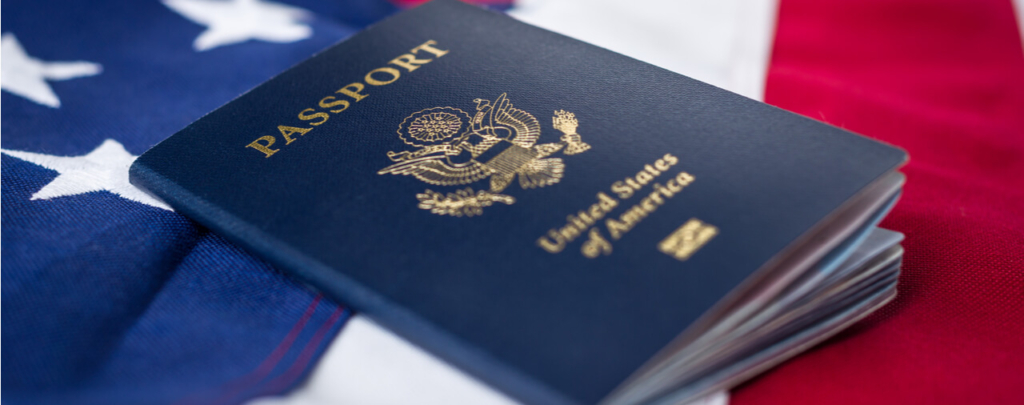- Introduction
- Facts and Procedural History of Maslenjak
- Question before the Supreme Court of the United States in U.S. v. Maslenjak
- Key Statutes and Issues in Maslenjak
- Reasoning and Decision in Maslenjak
- Overview of Divergent Decision in Puerta
- Conclusion
June 25, 2017 Update: The Supreme Court issued its decision in Maslenjak v. United States, 582 U.S. __ (2017). The Supreme Court reversed the Sixth Circuit decision discussed in this article. The Supreme Court held that materiality is an element of 18 U.S.C. 1425(a). Please see our full article on the Supreme Court decision to learn more [see article].
Introduction
On April 7, 2016, a three judge panel of the United States Court of Appeals for the Sixth Circuit issued a published decision in U.S. v. , 821 F.3d 675 (6th Cir. 2015) [PDF version]. The decision, authored by Judge S. Thomas Anderson, allowed a naturalized citizen to be denaturalized under section 340(e) of the INA based on her conviction under 18 U.S.C. 1425(a) for making a false statement that was immaterial to her naturalization. Subsequent to the decision, the Sixth Circuit denied rehearing en banc on May 27, 2016. The Supreme Court of the United States granted a petition for certiorari on January 13, 2017, and heard oral arguments on April 26, 2017. In this article, we will examine the facts of the case and the Sixth Circuit decision in brief. We will also examine the earlier decision of the United States Court of Appeals for the Ninth Circuit in U.S. v. Puerta, 982 F.2d 1297 (9th Cir. 1992) [PDF version], which reached a contrary result to the Sixth Circuit decision in Maslenjak.
Please see our companion article on the oral arguments in the case before the Supreme Court for more recent happenings in the case [see article].
Facts and Procedural History of Maslenjak
The case concerned a naturalized citizen appellant who had been convicted of having knowingly procured naturalization contrary to the law in violation of 18 U.S.C. 1425(a) and of misuse of evidence of citizenship or naturalization under 18 U.S.C. 1423.
The appellant, Divna Maslenjak, was a native of what is today Bosnia. In 1998, she and her family met with a then-Immigration and Naturalization Service (INS) officer to seek refugee status based on fear of persecution in Bosnia. The record of the Maslenjak’s trial showed that she acted as the primary applicant on her family’s application for refugee status. She stated under oath to the INS officer that her family feared persecution because her husband did not serve in the military during the Bosnian Civil War, instead living in Serbia to avoid conscription. She further stated that she had remained in Bosnia and lived apart from her husband from 1992 to 1997. The INS opted to grant the Maslenjak and her family refugee status. They immigrated to the United States in 2000 and became lawful permanent residents in 2004.
In 2006, the United States Immigration and Customs Enforcement (ICE) interviewed Maslenjak’s husband as part of an investigation as to whether he had failed to disclose his military service in Serbia in his immigration application. Maslenjak was present during the interview. Her husband was charged with two counts of making a false statement under 18 U.S.C. 1546(a), specifically for having failed to disclose his service in the Bratunac Brigade of the Army of the Republic Srpska (VRS), “a unit that participated in the genocide of 7,000 to 8,000 Bosnian Muslims in 1995.” There was no evidence that Maslenjak’s husband himself participated in the genocide, although there was evidence that he had been in the VRS at the time it occurred. He was arrested on the charges filed under 18 U.S.C. 1546(a).
One week after her husband was arrested, Maslenjak filed the Form N-400, Application for Naturalization, on December 20, 2006. One of the questions on the Form N-400 inquired as to whether she had ever “knowingly given false or misleading information to any U.S. government official while applying for any immigration benefit or to avoid deportation, exclusion, or removal.” Another asked whether she had ever “lied to a U.S. government official to gain entry or admission into the United States.” Maslenjak answered “no” to both of those questions. Furthermore, during her subsequent naturalization interview, she declined to make any changes to her answers on the Form N-400 when presented with the opportunity to do so. Maslenjak was naturalized as a United States citizen on August 3, 2007.
On October 7, 2007, Maslenjak’s husband was found guilty in federal court of making false statements under 18 U.S.C. 1546(a). The conviction rendered him subject to removal. As a defense from removal, Maslenjak’s husband applied for asylum. Maslenjak filed a Form I-130, Petition for Alien Relative on his behalf and testified for him at his asylum hearing. During her testimony, Maslenjak stated that her husband had served in the VRS and that they had lived together in Bosnia after 1992. She also admitted that she had lied to the INS about her husband’s military service and living circumstances in seeking refugee status in her interview in 1998.
“On March 5, 2013, a federal grand jury indicted Maslenjak with one count of knowingly procuring naturalization contrary to the law in violation of 18 U.S.C. 1425(a).” Specifically, the indictment alleged that she had “made material false statements” on her Form N-400. She was also charged with one count of misusing her unlawfully procured certificate of naturalization to file a Form I-130 petition on behalf of her husband in violation of 18 U.S.C. 1423. On April 17, 2014, Maslenjak was found guilty by a jury of both charges. She was sentenced to two years’ probation. The district court granted the government’s motion to have Maslenjak’s naturalization revoked under the denaturalization provision found in section 340(e) of the Immigration and Nationality Act (INA) (due to the conviction under 18 U.S.C. 1425(a)). Maslenjak appealed the adverse decision to the Sixth Circuit.
Question before the Supreme Court of the United States in U.S. v. Maslenjak
Before analyzing the Sixth Circuit decision in Maslenjak and the divergent Ninth Circuit opinion in Puerta, we should understand the issue from Maslenjak that is currently pending before the Supreme Court on appeal.
The Supreme Court is considering “[w]hether the Sixth Circuit erred in holding … that a naturalized American citizen can be stripped of her citizenship in a criminal proceeding based on an immaterial false statement” [PDF version]. We will analyze the Maslenjak and Puerta decisions in light of the question before the Supreme Court.
Key Statutes and Issues in Maslenjak
Maslenjak was convicted in violation of 18 U.S.C. 1425(a). An individual violates this statute if he or she:
knowingly procures or attempts to procure, contrary to law, the naturalization of any person, or documentary or other evidence of naturalization or citizenship.
A conviction under 18 U.S.C. 1425(a) may lead to fines and/or a term of imprisonment. However, the issue in Maslenjak is that an individual convicted in violation of 18 U.S.C. 1425(a) is subject to automatic denaturalization under section 340(e) of the Immigration and Nationality Act (INA) (codified at 8 U.S.C. 1451(e)), which provides:
When a person shall be convicted under section 1425 of Title 18 of knowingly procuring naturalization in violation of the law, the court in which such conviction is had shall thereupon revoke, set aside, and declare void the final order admitting such person to citizenship, and shall declare the certificate of naturalization of such person to be cancelled.
Critical to the issue before the Supreme Court are two points that we must understand. First, 18 U.S.C. 1425(a) is a criminal statute. That means an individual charged with violating 18 U.S.C. 1425(a) will face criminal proceedings rather than civil immigration proceedings. This is distinguishable from the naturalization provision found in section 340(a) of the INA which provides for a civil denaturalization procedure for a naturalized citizen who “illegally procured or [] procured by concealment of a material fact or willful misrepresentation” a certificate of naturalization (however, note that the certificate of naturalization must then still be revoked by a federal district judge). The second point to understand is that courts do not have the discretion to choose not to revoke the naturalization of an individual convicted in violation of 18 U.S.C. 1425(a). This is because the language of section 340(e) of the INA is mandatory, stating that the court “shall thereupon revoke, set aside, and declare void” the final order admitting the individual as a citizen of the United States. The use of the word “shall” makes clear that denaturalization is an absolute and necessary consequence of a conviction in violation of 18 U.S.C. 1425.
The pertinent question that the Sixth Circuit examined — and the Supreme Court will examine — is whether an individual may be denaturalized under 18 U.S.C. 1425(a) and section 340(e) of the INA for a false statement that was not material to the individual’s application for naturalization being approved. “Material” can be understood as something affecting the adjudicator’s decision to grant or deny a naturalization application (the standard for section 340(a) civil denaturalization is whether the false statement had a natural tendency to influence the decision). In providing instructions to the jury, the District Court judge presiding over Maslenjak’s trial made clear that 18 U.S.C. 1425(a) did not require proof of materiality. This means that regardless of whether Maslenjak’s false statements were material to her asylum petition, the jury did not have to come to a decision regarding the materiality because it was instructed that materiality was not an element of 18 U.S.C. 1425.1 In short, an “element” is something that must be proven (or admitted to in a plea) in order to sustain a conviction.
The government in Maslenjak’s case alleged that she had committed two predicate offenses relating to violations of the laws concerning naturalization that led to her having violated 18 U.S.C. 1425. The first of these is 18 U.S.C. 1015(a), which criminalizes:
knowingly mak[ing] any false statement under oath, in any case, proceeding, or matter relating to, or under, or by virtue of any law of the United States relating to naturalization, citizenship, or registry of aliens…
Additionally, the government alleged that Maslenjak’s false statements meant that she was not a person of good moral character (as defined in section 101(f)(6) of the INA) at the time she was naturalized as required for naturalization under section 316(a)(3) of the INA.
Please note that Maslenjak’s conviction under 18 U.S.C. 1423 necessarily relied upon her conviction under 18 U.S.C. 1425, and it is, therefore, not an issue that will be discussed in any of the articles pertaining to this litigation.
In the next section, we will examine why the Sixth Circuit agreed with the District Court decision and found ultimately that materiality is not an element of 18 U.S.C. 1425 and that Maslenjak’s denaturalization was not in error. In the subsequent section, we will briefly example the 1992 Ninth Circuit decision in Puerta which held contrarily that materiality is an element of 18 U.S.C. 1425.
Reasoning and Decision in Maslenjak
The opinion of the court in Maslenjak was authored by United States District Court Judge S. Thomas Anderson, who was sitting on the Sixth Circuit by designation for the case.
The decision first addressed whether materiality is an element of 18 U.S.C. 1425. The opinion stated that “[a] plain reading of the statute suggests that materiality is not an element of the offense” 821 F.3d at 682 (2017). Maslenjak conceded that 18 U.S.C. 1425(a) does not explicitly require materiality. However, she argued that materiality was nevertheless necessarily implied in the text of 18 U.S.C. 1425(a).
First, she noted that the civil denaturalization statute found in section 340(a) of the INA requires that a “misrepresentation” in procuring citizenship have been material. The Sixth Circuit, however, disagreed and found that reading the civil materiality requirement into the criminal provision to be unwarranted.
The Sixth Circuit read “contrary to the law” in 18 U.S.C. 1425(a) as requiring proof that Maslenjak’s conduct had “violated at least one other law applicable to naturalization.” 821 F.3d at 683 (2017). The Sixth Circuit reasoned that neither of the predicate offenses that the government alleged that Maslenjak had committed — 18 U.S.C. 1015(a) or procuring naturalization while not being a person of good moral character as required by section 316(a)(3) of the INA — require that a false statement have been material. The Sixth Circuit took the position that Congress had established a “two-track system for denaturalization[,]” one civil and one criminal. It found that there was “little justification” for reading the civil proceeding materiality requirement into the criminal statute.
The Sixth Circuit noted that — in accord with the plain text of section 340(a) of the INA — the Supreme Court had found that materiality was an element of the civil denaturalization statute in Kungys v. United States, 485 U.S. 759 (1988) [PDF version]. It explained that the Supreme Court made clear that the burden of proof shifts in civil denaturalization proceedings, which inherently affords less protection to the naturalized citizen than he or she has in criminal proceedings. In Johannessen v. United States, 225 U.S. 227, 242 (1912) [PDF version], the Supreme Court held that civil denaturalization does not impose a punishment on an alien who procured naturalization by fraud or other illegal conduct, but instead “deprives him of ill-gotten privileges.”
Conversely, the Sixth Circuit explained that in criminal proceedings brought under 18 U.S.C. 1425(a), “the government has the burden to establish the elements of the offense beyond a reasonable doubt, and the accused has the right to all the constitutional due process he would not otherwise receive as part of a civil denaturalization proceeding under [section 340(a) of the INA]” 821 F.3d 685.
The Sixth Circuit stated that Maslenjak restricted her materiality argument to 18 U.S.C. 1425(a), and did not attest that the statute under which she was denaturalized — section 340(e) of the INA — contained a materiality requirement. The Sixth Circuit quoted from the Supreme Court decision in Bates v. United States, 522 U.S. 23, 29-30 (1997) [PDF version], “[w]here Congress includes particular language in one section of a statute but omits it in another section of the same Act, it is generally presumed that Congress acts intentionally and purposely in the disparate inclusion or exclusion.” In referencing Bates, it is important to note that the Sixth Circuit is referring to the differing language in sections 340(a) (civil denaturalization provision) and section 340(e) (automatic denaturalization for conviction under 18 U.S.C. 1425(a)), and not the text of 18 U.S.C. 1425(a).
The Sixth Circuit explained that 18 U.S.C. 1425(a) was intended to sweep more broadly than section 340(a) of the INA. For example, a person may be convicted in violation of 18 U.S.C. 1425(a) for procuring “documentary or other proof of naturalization or citizenship” in addition to naturalization. Furthermore, a person may be convicted in violation of 18 U.S.C. 1425(a) for doing so for “any person,” meaning a naturalized citizen could be convicted for “improperly obtaining a forged naturalization certificate for a family member” 821 F.3d 686.
Based on its reading of 18 U.S.C. 1425(a), the Sixth Circuit found that the government had to establish the following in order to secure a conviction:
1. Maslenjak procured her naturalization;
2. She procured it in some manner contrary to law; and
3. That she did so knowingly (id.).
The critical dispute between Maslenjak and the government was the meaning of “contrary to the law.” The District Court had instructed the jury that contrary to the law encompassed any false statement made in an immigration hearing, regardless of materiality. The Sixth Circuit found that this instruction was correct because it applies to “all laws applicable to naturalization” 821 F.3d 687. Pertinently, this meant 18 U.S.C. 1015(a), one of the alleged predicate offenses, which lacks an explicit materiality requirement. To this effect, the Sixth Circuit cited to the Supreme Court decision in Fedorenko v. United States, 449 U.S. 490 (1981) [PDF version], wherein the Court quoted from United States v. Ginsberg, 243 U.S. 472, 474-475 (1917) [PDF version], in making clear that “[n]o alien has the slightest right to naturalization unless all statutory requirements are complied with…” The Sixth Circuit also noted that it and other circuits have upheld convictions under 18 U.S.C. 1425(a) where the predicate offense was another criminal offense (see e.g., United States v. Damrah, 412 F.3d 618, 622-23 (6th Cir. 2003) [PDF version]; United States v. Alameh, 341 F.3d 167, 171-72 (2d Cir. 2003) [PDF version]). Accordingly, the Sixth Circuit saw fit to diverge from United States v. Puerta, wherein the Ninth Circuit interpreted “contrary to the law” to mean “contrary to the INA.”
The Sixth Circuit then assessed the alleged predicate offenses committed by Maslenjak.
In an unpublished decision, the Sixth Circuit had held that 18 U.S.C. 1015(a) has no materiality element. In precedent decisions, the Ninth Circuit in United States v. Youssef, 547 F.3d 1090, 1094 (9th Cir. 2008) [PDF version], and Fourth Circuit in United States v. Abuagla, 336 F.3d 277, 278 (4th Cir. 2003) [PDF version], held similarly. The Sixth Circuit reasoned that 18 U.S.C. 1015(a) lacked a materiality requirement. Accordingly, the District Court had been correct in instructing the jury that no such requirement existed.
The Sixth Circuit took the position in its opinion that 18 U.S.C. 1015(a) was a predicate offense for 18 U.S.C. 1425(a) because it satisfied the “contrary to law” element of 18 U.S.C. 1425. It further stated that requiring materiality as an element for 18 U.S.C. 1425(a) alone “would lead to incongruous legal outcomes” (821 F.3d at 689). In short, the Sixth Circuit’s rationale meant that reading materiality into 18 U.S.C. 1425(a) would render the phrase “contrary to the law” as meaning merely “contrary to some laws,” an outcome that it did not find was justified by the text of the provisions in question.
The Sixth Circuit criticized the Puerta decision insofar as it read materiality into 18 U.S.C. 1425 regarding false statements while failing to acknowledge that 18 U.S.C. 1425 encompasses conduct beyond false statements. We will examine the Puerta decision in more detail in the next section.
Maslenjak also argued that because of the severity of denaturalization, the same materiality standard that applies to civil denaturalization proceedings should apply to the criminal statute. However, the Sixth Circuit found that “the argument invites us to overlook the plain text of 18 U.S.C. 1425(a) and disregard the overall statutory scheme Congress has enacted for denaturalization under the INA” 821 F.3d at 691.
The Sixth Circuit explained that the discrepancy between the civil denaturalization statute and the criminal provision “is actually consistent with a two-track statutory scheme for denaturalization” 821 F.3d at 693. To this effect, the decision referenced the lesser burden carried by the government in civil proceedings than in criminal proceedings, and the extra protections afforded to a criminal defendant that are not provided to an individual facing civil charges.
Next, the Sixth Circuit addressed Maslenjak’s arguments that the district court was in error in instructing the jury that it could convict her under 18 U.S.C. 1425(a) if it found that her false statements established that she was not a person of good moral character at the time of naturalization. Section 101(f)(6) of the INA states that an individual cannot establish good moral character if, within the period a showing of good moral character is required, he or she gives “false testimony for the purpose of obtaining any benefit” under the INA. Maslenjak made two constitutional arguments against convicting her for lack of good moral character. For reasons we will examine, the Sixth Circuit found her arguments unavailing.
First, the Sixth Circuit addressed Maslenjak’s claim that her conviction “amounts to an unconstitutional criminal punishment based on her status” as a person lacking good moral character. 821 F.3d at 693. The Sixth Circuit rejected this argument because 18 U.S.C. 1425(a) criminalizes conduct rather than status, that is, her knowingly procuring naturalization in a manner contrary to the laws governing naturalization. Accordingly, the Sixth Circuit explained that she was not punished for having been a person lacking good moral character, but rather for procuring naturalization with the knowledge that she was ineligible. The Sixth Circuit also rejected Maslenjak’s reliance on Puerta, wherein the Ninth Circuit stated that “simply being a person who cannot establish [good moral character] in court is not a crime” 982 F.2d at 1302. The Sixth Circuit reiterated that 18 U.S.C. 1425(a) — in its view — does not solely refer to violations of the INA, but rather violations of all statutes pertaining to naturalization. Accordingly, it found that Maslenjak was not punished for having the status of lacking good moral character.
Secondly, the SIxth Circuit addressed Maslenjak’s argument that the good moral character provision was unconstitutionally vague as applied to her case. To this effect, she cited to the good moral character “catch-all provision” in section 101(f)(9) of the INA. However, the Sixth Circuit noted that the district judge had only instructed the jury regarding section 101(f)(6), which covers the specific conduct engaged in by Maslenjak (giving false testimony to procure an immigration benefit). Because the conviction was based upon a finding of of specific conduct, the statute was not void for vagueness as applied to her case.
Finally, the Sixth Circuit addessed Maslenjak’s claim that the District Court’s instructions regarding section 101(f)(6) of the INA were insufficient, in that the judge did not explain that the false “testimony” must be oral and must be given with the specific intent to obtain a benefit under the INA in order to sustain a conviction. In Kungys, the Supreme Court had made clear that, for purpose of section 101(f)(6), the false testimony need not be material but must be oral. Kungys, 485 U.S. at 780. The Sixth Circuit found that, taken as a whole, the jury instructions given by the District Court “accurately reflected the law.” 821 F.3d at 696. The judge instructed the jury that “[g]iving false testimony for the purpose of obtaining any immigration benefit precludes someone from being regarded as having good moral character.” Although the Sixth Circuit did note that the judge did not define “testimony” as being limited to oral statements nor did it advise the jury as to which of Maslenjak’s statements constituted “testimony,” the instructions were not “confusing, misleading, or prejudicial” when viewed as a whole and given the plain meaning of the word “testimony.” Furthermore, the opinion found that,in light of the evidence heard by the jury that the testimony had, in fact, been oral, any lack of specificity in the jury instruction constituted “harmless error.”
Judge Julia Smith Gibbons authored a concurring opinion. Interestingly, she noted that she was initially inclined to follow Puerta but was persuaded to join the opinion authored by Judge Thompson because of its analysis of the statutes. However, she expressed reservations with the perceived absence of a materiality element from 18 U.S.C. 1425(a), and she stated that she did not “locate[] any analogous context in which the elements of a crime are less onerous than the elements of the related civil penalty proceeding.” Although she found the result “troublesome,” she nevertheless joined the opinion because it was “guided by what the law requires.”
Overview of Divergent Decision in Puerta
In Puerta, the Ninth Circuit held that false statements must be “material” in order to sustain a conviction under 18 U.S.C. 1425(a). Interestingly, in that case, the government actually took the position that 18 U.S.C. 1425(a) “implies a materiality requirement similar to the one used in the [civil] denaturalization context.” 982 F.2d at 1302. Both the opinion of the Sixth Circuit and the concurring opinion noted the government has taken inconsistent positions on this question in different cases. This finding led the Ninth Circuit to conclude that 18 U.S.C. 1425(a) cannot apply to having lacked good moral character because that is a status and not a crime. Significantly, Ninth Circuit precedent makes clear that a false statement must be material in order to lead to a conviction under 18 U.S.C. 1425(a).
Conclusion
Please continue to our article on the oral arguments before the Supreme Court in Maslenjak to read about how the case has progressed [see article].





